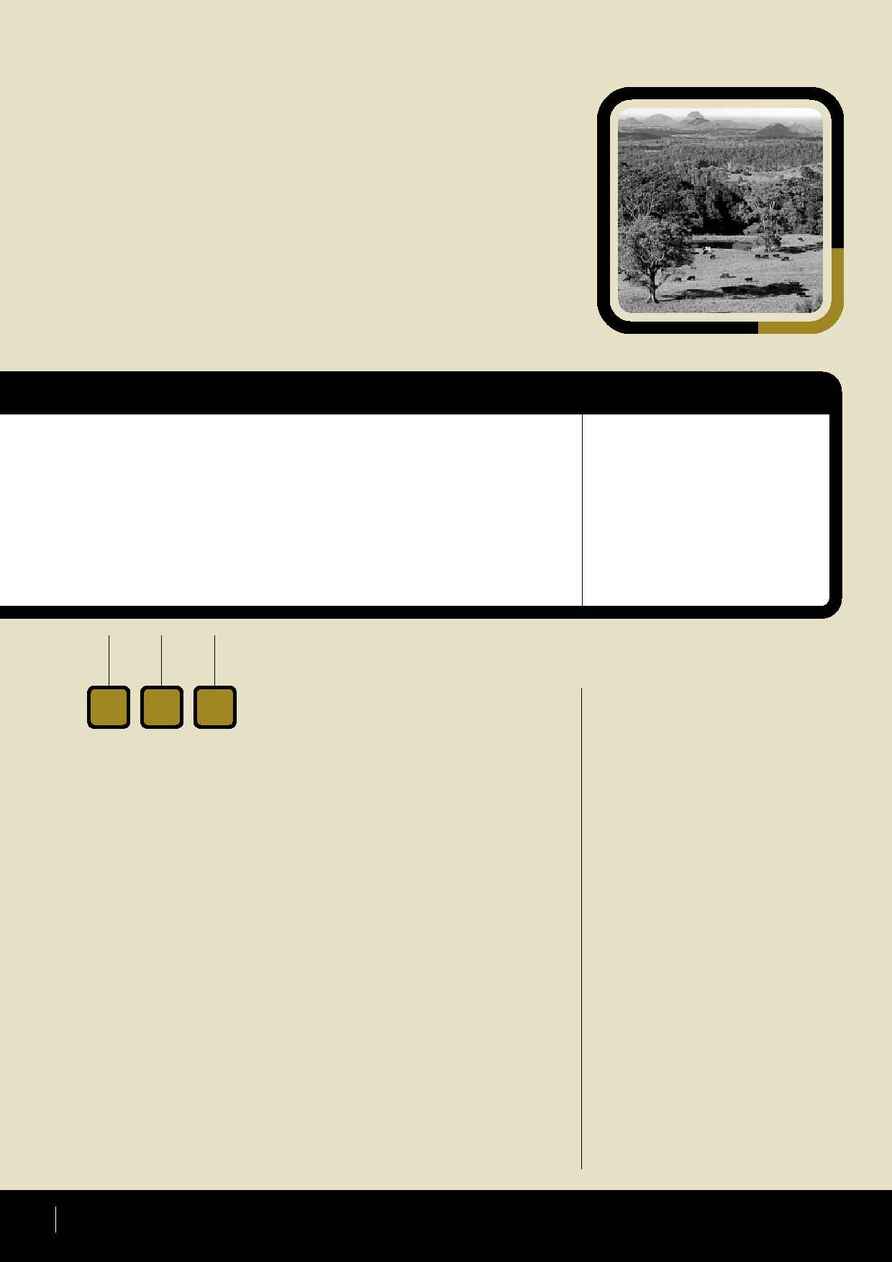
AGRICULTURE AND
HORTICULTURE 2002
8
Campus:
UQ Gatton
Program duration:
4 years full-time
Prerequisites:
English
2001 OP/Rank:
OP 12, Rank 75 (UAI NSW 75.40)
Recommended subjects:
Biology, Chemistry and/or Mathematics B
Environmental
Management
(Rural Systems)
BACHELOR OF
12
75
Campus
OP Score
Rank
This program is designed to produce graduates who focus on the sustainable use
and management of productive rural systems and the sustainable use of natural
resources.
G
Career options
In an industry valued in excess of $21 billion
annually (more than 75 percent of that in
primary industry exports), well-qualified
people will always be in demand. There are
expected to be increasing career openings for
graduates able to combine a good command of
the business of production agriculture with
expertise in technical and/or social aspects of
environmental management.
Graduates find employment as:
q
managers of family farms
q
managers of company-run farms
q
managers with agribusiness companies
q
marketing managers in export companies
q
bank representatives
q
management consultants
q
extension officers
q
secondary school teachers (following
further study)
q
scientists working in applied research
q
officers in government departments for
primary industries or natural resources
q
executive officers of producer organisations
Special program
features
q
This multi-disciplinary program includes
studies in science, technology, business,
resource economics, marketing and
sustainable land use, all of which are
integrated within a systems framework.
q
Studies place a strong emphasis on develop-
ing problem-solving skills.
q
Students may transfer between
specialisations within the Bachelor of
Environmental Management up to the end of
the fourth semester.
q
The Tropical Natural and Rural Systems tour
provides students with exposure to a wide
range of natural and production environ-
ments, and the attendant challenges to their
sustainable long-term management.
q
The program provides a balance between
science and management, with an emphasis
on environmental, economic and social
dimensions of sustainability.
q
Students are encouraged to interact with
professional managers of farms and
agribusiness firms, as well as those working
in the interface between natural and
production systems.
